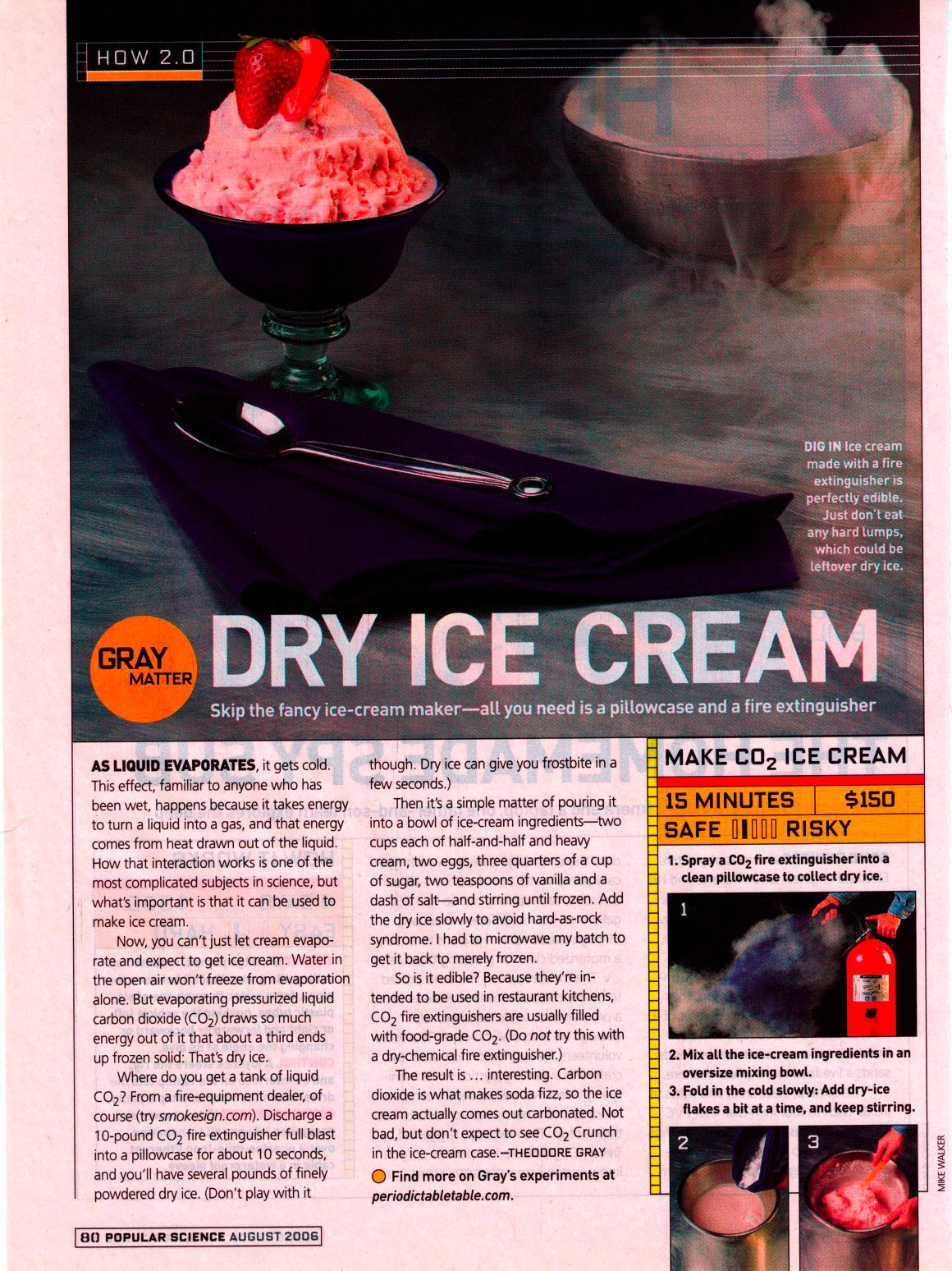As liquid Evaporates, it gets cold. This effect, familiar to anyone who has been wet, happens because it takes energy to turn a liquid into a gas, and that energy comes from heat drawn out of the liquid. How that interaction works is one of the most complicated subjects in science, but whata^\200\231s important is that it can be used to make ice cream.
Now, you cana^\200\231t just let cream evaporate and expect to get ice cream. Water in the open air wona^\200\231t freeze from evaporation alone. But evaporating pressurized liquid carbon dioxide (CO2) draws so much energy out of it that about a third ends up frozen solid: Thata^\200\231s dry ice.
Where do you get a tank of liquid CO2? From a fire-equipment dealer, of course (try smokesign.com). Discharge a 10-pound CO2 fire extinguisher full blast into a pillowcase for about 10 seconds, and youa^\200\231ll have several pounds of finely powdered dry ice. (Dona^\200\231t play with it though. Dry ice can give you frostbite in a few seconds.)
Then ita^\200\231s a simple matter of pouring it into a bowl of ice-cream ingredientsa^\200'two cups each of half-and-half and heavy cream, twoa^\200\210eggs, three quarters of a cup of sugar, two teaspoons ofa^\200\210vanilla and a dash of salta^\200'and stirring until frozen. Add the dry ice slowly to avoid hard-as-rock syndrome. I had to microwave my batch to get it back to merely frozen.
So is it edible? Because theya^\200\231re inA^\[DiscretionaryHyphen]tended to be used in restaurant kitchens, CO2 fire extinguishers are usually filled with food-grade CO2. (Do not try this with a dry-chemical fire extinguisher.)
The result is a^\200\246 interesting. Carbon dioxide is what makes soda fizz, so the ice cream actually comes out carbonated. Not bad, but dona^\200\231t expect to see CO2 Crunch in the ice-cream case. |
|

